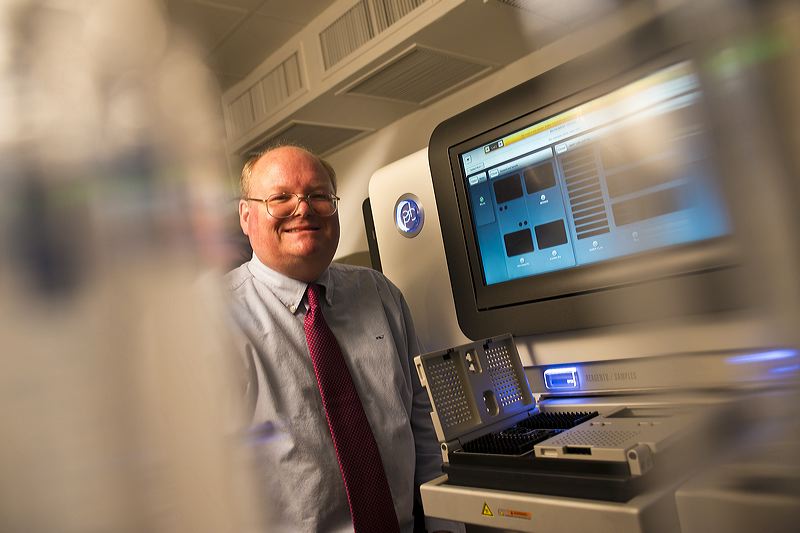Topics » MELT – Scott Devine
The Mobile Element Locator Tool (MELT) and the 1000 Genomes Project
Scott E. Devine, PhD, Associate Professor, Medicine (Endocrinology), researches mobile element insertions in genomes. He and his team are part of the 1000 Genomes Project , a large-scale international initiative that has created the largest public catalogue of human variation and genotype data. It was the first project to sequence the genomes of a large number of people to provide a comprehensive resource on human genetic variation.
Dr. Devine investigates human genome variation and studies how such variation affects human health. In November 2017, a publication about the tool that he and his team developed as part of the 1000 Genomes Project was published in the journal Genome Research. This tool, which is called the Mobile Element Locator Tool (or MELT for short), efficiently discovers and annotates new mobile element insertions (or MEIs) using whole genome sequencing data. MEIs are essentially “jumping genes” that can move from one place to another in human genomes.
The Graduate Program in Life Sciences (GPLS) recently recognized Eugene Gardners’s work as particularly outstanding by awarding him the 2017 GPLS Ph.D. Thesis Award for his work with MELT.
MEIs represent about 25% of all structural variants in human genomes and can be disruptive influences on human traits and diseases. Dr. Devine and his team developed the Mobile Element Locator Tool (MELT) to facilitate MEI discovery on a population scale in humans and other organisms. Their tool allows investigators to discover MEIs in human genomes with greater speed, scalability, specificity and sensitivity compared to previous MEI discovery tools.
Scalability is increasingly becoming important as MELT is now being applied to projects involving many thousands of additional human genomes. For example, Devine’s group is using MELT to discover MEIs in over 100,000 human genomes as part of the Top MED project and several other large consortia projects. MELT also has been downloaded by over 400 labs worldwide and is being used broadly for MEI discovery in projects involving neurological disorders including autism and schizophrenia, developmental disorders, cancers, and many other diseases.
Eugene Gardner, a recent graduate from the Molecular Medicine Ph.D. program, was the lead developer of MELT. The Graduate Program in Life Sciences (GPLS) recently recognized Eugene’s work as particularly outstanding by awarding him the 2017 GPLS Ph.D. Thesis Award for his work with MELT.
These studies have been funded by awards from the National Human Genome Research Institute (NHGRI R01 HG002898) and the National Cancer Institute (NCI R01 CA166661).


